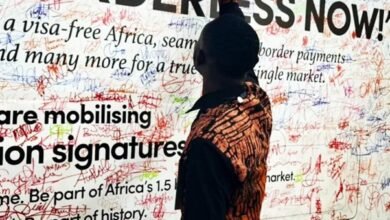Rwanda Today ! Rwanda Tomorrow !
Comfortably re-elected, Paul Kagame can now accelerate the pace of his ambitions for his country, which he aims to transform into the "African Singapore." Over the past two decades, Rwanda has made remarkable socio-economic progress, positioning itself as a model for development in Africa. The goal now is to make Rwanda an upper-middle-income country by 2035 and a high-income country by 2050, according to the ambitious Vision 2050 strategy, embodying the spirit of "Rwanda we want."

By Eugène Nyagahene*
At the end of August 2024, the curtain fell! After a well-conducted election campaign entirely funded by the sons of this nation, a new chapter begins! Time to get to work!
The swearing-in of the elected officials was carried out swiftly, and the outgoing government was almost entirely reinstated. The team is fully assembled to pursue the objectives of Vision 2050.
What does this mean?
A return to routine work after this campaign hiatus? For detractors of the country’s meteoric success since year zero (1994), it might seem so. But for those who believed in a better future, starting with the Rwandans themselves, as well as Rwanda’s friends and foreign investors who bet on this country, this new era heralds promising days ahead.
To better understand, one must look back at what allowed Rwanda to rise from its ashes and what it could become in the next two decades.
Flashback to 1994: A country socially and economically devastated: 1 million people murdered, 250,000 women raped, 2 to 3 million people refugees in the DRC, and all the country’s infrastructure entirely destroyed.
Fast forward to 2024: The trajectory has not been smooth. Far from it. Despite all the challenges imaginable, today, this country is talked about in glowing terms, even with a few discordant notes, in all fields, especially those where it was least expected: from high-end tourism to sponsoring prestigious sporting events like the English Premier League and the announced Formula 1, to the NBA. Economic performances, for their part, have become an annual routine.
The fruit of the hard work of an entire people and their leader
Is this a miracle? Not at all.
What Rwanda has become today and plans to become soon is neither a coincidence nor a happy accident of history. It is simply the result of the hard work of an entire people and their leader, all highly disciplined—an indispensable asset for any large-scale project.
The end of the Cold War in the early 1990s was an opportunity for certain countries, including Rwanda, to rethink a future outside of any imported ideology. We delved into our culture and revived philosophical concepts and social notions that had been the foundation of traditional Rwandan society for centuries. For example, Agacaca for justice, Agaciro and Ubupfura in social and diplomatic relations, Ubudehe for our concerted development, Ubutwari to inspire brave soldiers, Ubuntu for sharing values with other African countries in need, and many more. The adverb Kirazira, for instance, serves as a guide to all of Rwanda’s cultural values.
Without these values, it is likely that Rwanda would never have become what it is. No reconciliation would have been possible, and no meaningful development plan would have ever been realized.
Rwanda has thus created its own good governance, displayed an allergic intolerance to corruption, and shown unwavering respect for laws and rules

What seemed impossible in year zero became a reality in thirty years, thanks to a skillful mix of these ancestral values with modernity. Rwanda has thus created its own good governance, displayed an allergic intolerance to corruption, and shown unwavering respect for laws and rules (strict timing, mutual trust, respect for given words, etc.). This blend of elements drawn from our roots explains the resilience of this country and its success in many fields.
As a reminder, the same can be said about China’s unstoppable rise on the world stage at the end of the 20th and early 21st centuries. The awakening and meteoric rise of this giant, which gave the world the compass, gunpowder, paper, and printing, was only a matter of time. Industrious as they were, they remained so throughout a century of colonization.
For tomorrow, Rwanda will have to work hard to first stabilize its achievements
Have we reached our destination? No. Far from it.
Today, for tomorrow, Rwanda will have to work hard to first stabilize its achievements, then focus on rapidly training its children for future innovations and strengthening its diplomatic capacities to access international markets.
The capital Kigali and other cities in Rwanda have become so cosmopolitan, thanks to events, that a cultural mix is underway in this country. Just step outside to see it. This significant asset will certainly be a catalyst in our quest for development.
At this precise moment, when the geopolitical maps of the world are being reshuffled, a strategic financial repositioning of the country should be considered. Rwanda has so many assets to play a key role in the ecological transition, mastering renewable energies, and the transformation of critical minerals so abundant in the southern hemisphere of the African continent. There will no longer be any justification for Africa to continue exporting its minerals to Malaysia and China for processing. An attractive environment is taking shape here in several other key sectors, such as education, health, finance, and more.
An open-air laboratory for any convinced Pan-Africanist
A model for other African countries? Undoubtedly yes!
There have never been secrets for anyone wishing to draw inspiration from the Rwandan model. And there never will be. As proof, it is the only African country where one can enter without a visa as an African. The country has become an open-air laboratory for any convinced Pan-Africanist. The African leaders of yesterday envisioned and created African unity in 1963 (OAU), with mixed success. It is still possible to think about African economic unity today. From West Africa through the Sahel to the Southwest of the continent, passing through Rwanda. The South-South cooperation envisioned for decades could then become a reality.
*Eugène Nyagahene is the founder of the Tele 10 group, an economist, and an entrepreneur for over forty years in various fields such as agriculture, technology, finance, tourism, and many others.






